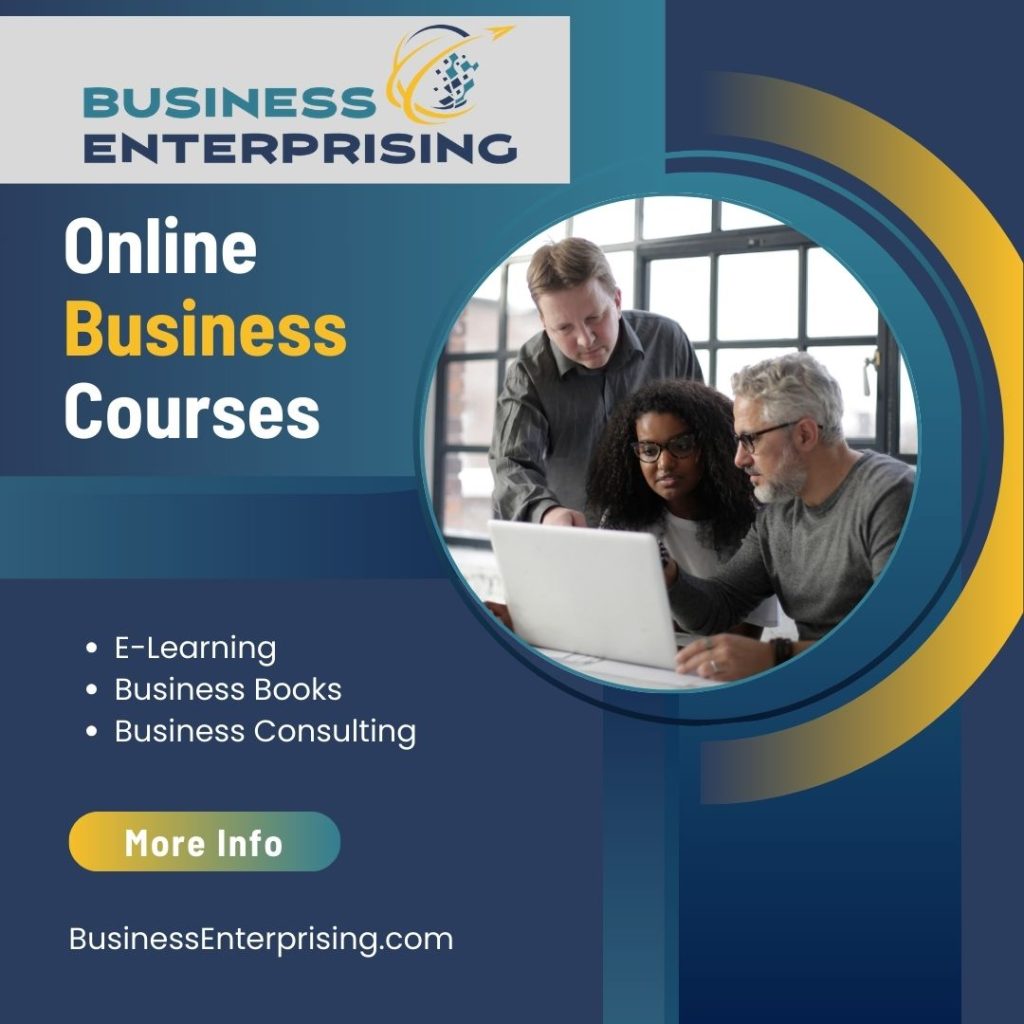
Additionally, you can see a strong focus on developing soft skills, such as communication and teamwork. These skills are essential in the modern workplace. Moreover, technology plays a significant role in shaping learning experiences. Tools like artificial intelligence and data analytics make personalized learning possible.
As globalization increases, cross-cultural training is becoming more important. Understanding diverse perspectives prepares you for an interconnected world. This article will explore various business education trends and their impact on your learning experience. By staying informed about these trends, you can better prepare yourself for future challenges in the business landscape.
Rise of Online Learning Platforms
The rise of online learning platforms is reshaping traditional business education. With the emergence of Massive Open Online Courses (MOOCs), education is more accessible than ever. You can now enroll in courses from prestigious institutions without relocating or committing to a full-time program. This flexibility allows you to balance work and study, making learning more convenient.
Moreover, online courses provide a diverse range of topics. You can find specialized classes that cater to your interests and career goals. Many platforms also allow you to learn at your own pace. This personalized approach aligns with current business education trends, emphasizing the need for tailored learning experiences.
Additionally, online platforms often incorporate the latest technologies. Many courses use interactive elements, such as videos, quizzes, and discussion forums. These tools not only enhance engagement but also facilitate collaboration among students from around the world. As a result, you gain insights from peers with different backgrounds and experiences, enriching your learning journey.
The shift towards online learning is not just a trend; it’s a transformation in how business education is delivered. Traditional institutions are now adapting to this change by offering hybrid models. These models combine online and in-person instruction, providing you with the best of both worlds. As a result, the landscape of business education continues to evolve, meeting the demands of today’s learners.
Focus on Soft Skills Development
The focus on soft skills development is becoming increasingly significant in business education. As industries evolve, employers value attributes like communication, teamwork, and adaptability more than ever. These skills complement technical knowledge, making you a well-rounded professional. Traditional business programs now integrate soft skills training into their curricula. This shift reflects current business education trends.
Communication skills are essential in any workplace. You need to convey ideas clearly and collaborate effectively with colleagues. Programs that emphasize this skill prepare you for real-world challenges. Additionally, teamwork is crucial in diverse work environments. You will often work with people from different backgrounds and expertise. Developing the ability to collaborate fosters a positive work culture.
Adaptability also plays a key role in today’s fast-paced business world. The ability to pivot in response to change is increasingly important. Educational programs are now teaching students to embrace uncertainty and approach problems creatively. This focus on soft skills not only benefits you as an individual but also enhances team dynamics.
By prioritizing soft skills alongside technical knowledge, business programs equip you for success. As the job market continues to evolve, these skills will set you apart from the competition. Overall, a well-rounded education that combines hard and soft skills prepares you for future challenges. Thus, understanding and improving your soft skills will significantly impact your career trajectory.
Integration of Technology in Curriculum
The integration of technology in the curriculum is reshaping business education significantly. Tools like artificial intelligence (AI), virtual reality (VR), and data analytics are transforming how you learn and engage with the material. These innovations allow you to gain practical experience and develop skills that are highly valued in the job market. This shift reflects current business education trends.
AI has made a considerable impact on personalized learning. With AI-driven platforms, you can receive tailored recommendations based on your strengths and weaknesses. This approach helps you focus on areas needing improvement, ultimately enhancing your learning outcomes. Additionally, data analytics tools enable you to understand market trends and consumer behavior more effectively. By learning to interpret data, you prepare yourself for data-driven decision-making in real-world scenarios.
Moreover, VR technology offers immersive learning experiences that traditional methods cannot match. For instance, you can participate in simulations that mimic real-life business situations. This hands-on approach allows you to practice skills in a controlled environment. As a result, you can build confidence and competence before entering the workforce.
As these technologies become integral to business education, you must adapt and embrace them. Familiarizing yourself with these tools will set you apart from your peers. By actively engaging with technology, you gain a competitive edge in your career. Overall, the integration of technology is revolutionizing how you learn, making business education more relevant and effective.
Emphasis on Sustainability and Ethics
Business schools are increasingly emphasizing sustainability and ethical decision-making in their curricula. This shift reflects the growing demand for socially responsible leaders. You might notice courses focusing on sustainable business practices and ethical frameworks in decision-making. This change aligns with current business education trends that prioritize the long-term impact of business activities.
Many programs now include case studies that highlight successful companies prioritizing sustainability. These examples demonstrate how ethical practices can lead to positive financial outcomes. Furthermore, guest speakers from various industries share their experiences in implementing sustainable initiatives. This exposure helps you understand the real-world implications of your choices. You learn not only about profit but also about the impact on society and the environment.
Additionally, business schools encourage project-based learning that addresses sustainability challenges. Through collaborative projects, you explore innovative solutions for real companies. This hands-on approach fosters critical thinking and creativity. It also prepares you for future roles where ethical considerations are paramount. You gain practical skills while developing a mindset focused on positive change.
As you progress in your education, you become equipped to make responsible decisions. The emphasis on sustainability and ethics is shaping the next generation of business leaders. By integrating these themes into the curriculum, schools prepare you for a future where success is measured not just by profits but also by positive societal impact. Ultimately, this shift will influence how you approach business challenges throughout your career.
Personalized Learning Experiences
Personalized learning experiences are becoming a significant trend in business education. This approach allows you to tailor your education based on your individual needs and career aspirations. Instead of a one-size-fits-all curriculum, you can now choose courses that align with your interests. This flexibility helps you focus on skills that matter most to you.
Many business schools now offer customized learning paths. These paths allow you to select electives and specializations that suit your career goals. For example, if you aim to work in digital marketing, you can prioritize courses that enhance your expertise in that area. Additionally, some programs provide assessments to identify your strengths and weaknesses. This process helps you understand where to focus your efforts.
Furthermore, technology plays a significant role in facilitating personalized learning. Online platforms often use data analytics to track your progress. Based on your performance, they recommend resources and activities tailored to your learning style. This adaptive learning environment keeps you engaged and motivated. It also helps you build competencies at your own pace.
Ultimately, personalized learning experiences prepare you for the complexities of the business world. You gain the knowledge and skills needed to succeed in your chosen field. By aligning your education with your career goals, you position yourself for future success. This trend is reshaping how business education addresses individual student needs. It reflects a shift towards a more student-centered approach that empowers you to take charge of your learning.
Global Perspective in Business Education
A global perspective is increasingly important in business education. As markets become interconnected, you must understand diverse cultures and practices. Business schools now emphasize cross-cultural training to prepare you for international opportunities. This training helps you develop the skills to work effectively in different cultural contexts.
Furthermore, many institutions are forming international partnerships with schools and companies around the globe. These partnerships provide you with opportunities to study abroad and engage in exchange programs. Such experiences enrich your education and broaden your worldview. You gain insights into global business practices and learn how to adapt to various markets.
Additionally, globalization influences the curriculum in business programs. Many schools now include courses on international business strategies and global market trends. This focus allows you to analyze real-world case studies from around the globe. As a result, you become better equipped to tackle challenges in a global marketplace.
Overall, these business education trends reflect the growing importance of a global perspective. You gain valuable skills that enhance your employability and prepare you for a diverse work environment. Understanding different cultures and business practices positions you for success in an interconnected world. This shift in focus helps you build the competencies needed to thrive in the global economy.
Conclusion
In summary, the landscape of business education is rapidly evolving. You must stay informed about the latest trends shaping your learning experience. From the rise of online learning platforms to the integration of technology in the curriculum, these changes impact how you acquire knowledge.
Moreover, the growing emphasis on soft skills and sustainability reflects the changing demands of the workforce. Your ability to communicate, adapt, and think ethically will be invaluable. Additionally, a global perspective in business education prepares you for a competitive job market. You will encounter diverse cultures and practices, enhancing your adaptability and cross-cultural competencies.
Overall, these business education trends highlight the need for a dynamic and responsive approach to learning. By embracing these changes, you position yourself for success in a complex business environment. The skills you gain today will serve you well in your future career. Therefore, staying engaged and adaptable will be essential as you navigate the future of business education.


